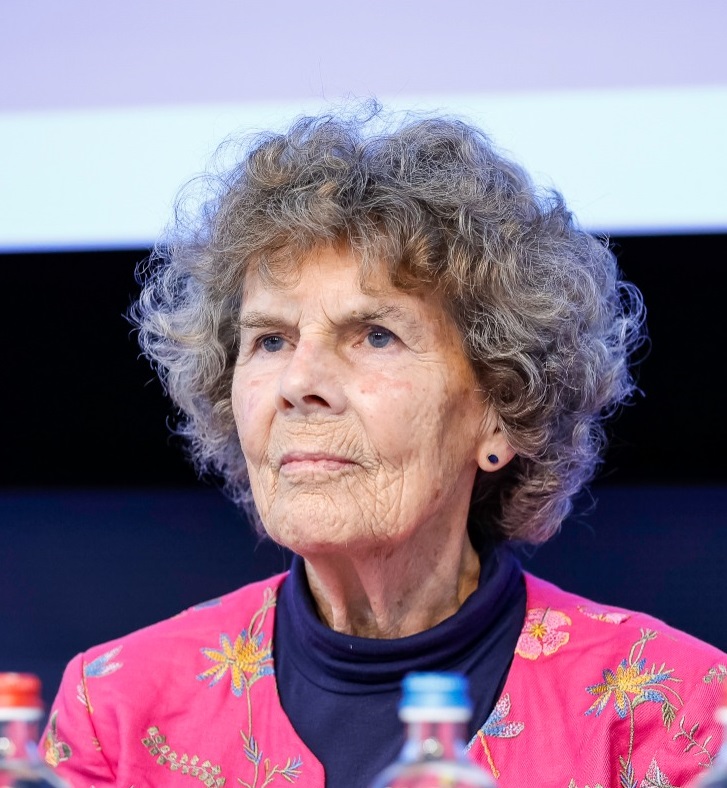
On 3 April 2025, the UN Human Rights Council adopted by consensus a decision to set up a working group to start drafting a UN Convention on the human rights of older persons – a historic milestone following years of advocacy by AGE, older persons, civil society, and other advocates around the world.
Do you want to understand what this historic decision means?
This article gives you clear answers to key 4 questions:
- What is a UN Convention and why does it matter?
- What is the historical context behind this decision?
- What are the next steps?
- How can you get involved?
01. What is a UN Convention and why does it matter?
A UN Convention is a legally binding treaty that sets out rules and standards for protecting human rights. A Convention on older persons’ rights will close protection gaps by obliging states worldwide to take concrete measures. It will help:




Learn more about the added value of a UN Convention:
- [Full Report] The EU must lead the rallying for a UN convention (PDF, also in French)
- [Summary] The EU must lead the rallying for a UN convention (PDF, also in French)
- [Video] Why we need a new UN Convention to fight ageism
- [Case Study] What is the impact of UN Conventions?
- [Podcast] Age with Rights and Dignity

02. What is the historical context behind this decision?
Since 2010, AGE and other civil society organisations have been active in a working group on ageing, established by the UN General Assembly. This group has shown that older people are often excluded from human rights protections, facing ageism, unequal access to healthcare, social security, and affordable housing, as well as greater risks in times of crisis.
In May 2024, UN Member States took a landmark step by recommending stronger measures to protect the rights of older people. Years of evidence and advocacy from governments, UN bodies, civil society, and older activists led to this recent historic decision: to establish a working group to begin drafting a UN Convention that will ensure we can all can fully enjoy our rights.


“Significant moments at the international level like the adoption of the landmark resolution this week do not happen without the actions of committed advocates at the local level all around the world. (…) We also want to take some time to pay tribute to those colleagues and campaigners that are no longer with us to share in this moment, but whose advocacy helped to get us to this stage.”
Ina Voelcker of BAGSO (German National Association of Senior Citizens‘ Organisations), and Rose Gahire of NSINDAGIZA Organisation, Rwanda
Co-chairs of Global Alliance for the Rights of Older People (GAROP)
Timeline

03. What are the next steps?
Drawing up a UN Convention is a complex and lengthy process.
The working group that will draft the UN Convention on the rights of older people is expected to meet twice a year in Geneva, in five-day hybrid sessions (if approved by the UN General Assembly), and the sessions will be webcast. An organisational session must take place before the end of 2025, and no later than before the start of the 61st session of the Human Rights Council, which is scheduled for March 2026.

It is crucial that older people’s voices are heard in the negotiations. We will collaborate with our members and civil society to ensure that the lived realities of old age are reflected in the proposed convention text. Additionally, we will work to channel our perspectives to the EU and member states involved in the negotiations.
AGE will partner with GAROP and other organisations to design an inclusive and transparent consultation process, including planning webinars, meetings, and training sessions to prepare for the next steps.
04. How can you get involved?
01. Contact your government before 18 April 2025!
– If your country co-sponsored the resolution, thank them.
– If you represent a civil society organisation, ask them to ensure representative organisations of older people are included in the drafting process.
If your country did not co-sponsor, urge them to do so:
– Use this template letter (Word document)
– Check co-sponsoring countries (Excel document)
02. Use AGE’s press release as a template to prepare your communication for national media.
03. Spread the word about the importance of this UN Convention
Stay tuned: share and engage on social media using #AWorldforAllAges
Linkedin | Facebook | BlueSky
Let’s keep the momentum going – together! Let’s make our voices heard and stand together for equality and dignity in older age.
Useful links
- UN Convention: A major step forward for Older People’s Rights may be near
- Historic development: UN States recommend a UN convention to better protect rights in old age
- United Nations’ working group on ageing recommends binding instrument to protect older people’s rights
- Equal rights for all ages: AGE contribution to UN Open-Ended Working Group on Ageing
- The EU leads the rallying for a UN Convention






